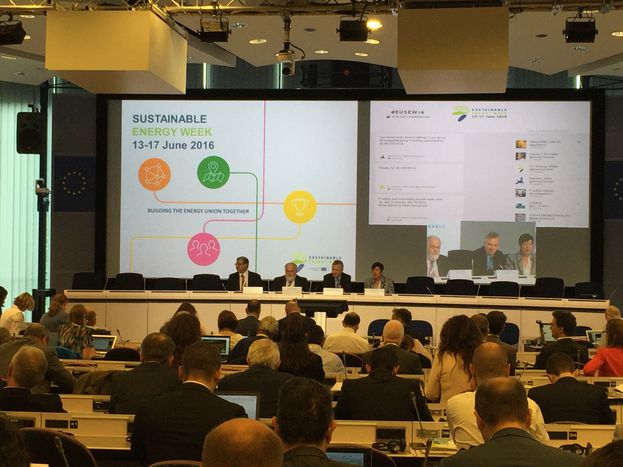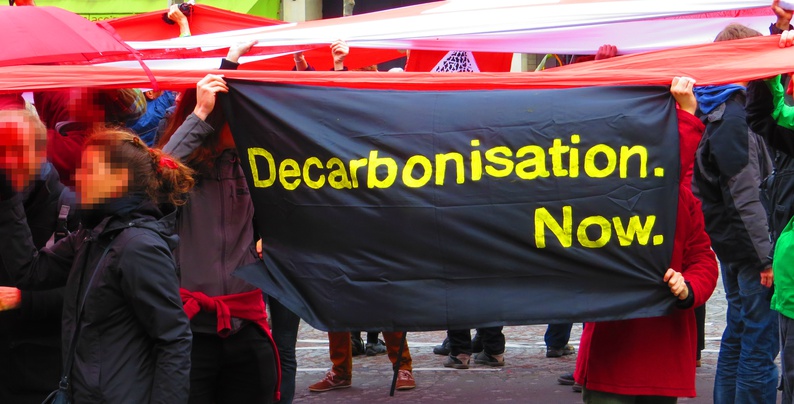
Energy talks in Brussels: Putting consumers first
Published on
What is the European Union doing to become the world leader in smart energy? Cafébabel gives you a quick overview of the 5 principles underlying the EU’s energy policy.
The moment has come to regulate energy ambitiously. Top-down initiatives by policy-makers can be found worldwide, including in Europe where the Juncker Commission has set energy as a key priority. A number of bottom-up initiatives are supporting this vision and are often more ambitious or original than legislators propose. Want proof? Take a look at the nominees for this year’s European sustainable energy awards to see just how active people are in the field of smart energy.
Time to move on energy
Right now, with a proactive Europe on the topic, there are plenty of projects on the ground in your country and your region. ‘Member States are using a wider collection of tools than the EU, due to the division of competencies. But the vision (for energy) is and has to be European’. That was a top official for energy in the European Commission, speaking at last May’s Energy Savings Summit. This shows why the EU needs to take coordinated actions if we want to tackle current energy challenges at the level of an entire continent.
Last summer, the European Commission published its vision for energy in a Communication establishing a ‘Framework Strategy for a Resilient Energy Union with a Forward-Looking Climate Change Policy’. You might ask yourself: what is the purpose of it all?
Well, in fact it is simple. If nothing happens at EU level, European countries will end up with fragmented and uncoordinated energy policies. On their own and as they are currently undertaken, they may struggle to integrate enough renewable energy, fail to improve energy efficiency or ensure affordable energy prices for consumers.
And this framework is a consensus, supposed to shake things up in Europe. On top of that, lobbying around energy challenges has been very constructive. At last May’s Energy Savings Summit, Green Member of Parliament Claude Turmes was amused to see that ‘Lobbying on energy has been the best and most efficient ever’, adding that ’companies are even rallying behind NGOs’.
So what’s the EU’s plan for energy?
Consuming less energy, reducing production of dirty fossils fuels, creating an internal energy market for electricity and not triggering black-outs. Here are the main pillars of what the EU wants to achieve.
- Energy security, solidary & trust
Energy is essential, everyone should be able to access it. As Marie Donnelly put it ‘Energy security has undeniable geopolitical implications: it touches the everyday life and stretches on to the stratosphere of the geopolitical level’. And indeed, the framework plans all kinds of actions to secure our energy supply. Like producing our own energy in Europe – through renewables for instance- and thus avoiding dependency on any energy producing country which could cause us trouble. What, has anyone said Russia?
- Fully integrated internal energy market
Meaning changing Europe’s old and inadequate energy infrastructures and improving the interconnection between electricity grids across Europe. With more interconnections, un-storable electricity from, let’s say Germany could be sold in Poland and thus won’t be lost because of insufficient demand in Germany.
- Energy efficiency as a contribution to the moderation of energy demand
As a senior program manager from the International Environmental Agency said: ‘Energy efficiency is the first fuel’. This is about setting ourselves high energy efficiency targets and increasing our energy savings.
 - Decarbonisation of the economy
- Decarbonisation of the economy
Getting rid of fossils fuels, time to decarbonise. It is one of the topics we know best and yet not well enough. Because in addition to decarbonising the transport sector by deploying alternative fuels and electric vehicles, we also need to invest more coherently in renewable technologies, in designing more smart cities, building smart homes and the list goes on.
- An Energy Union of Research, Innovation and Competitiveness
Investing in research and development to become world leader in the next generation of renewable energy sources, energy storage. Research also promotes new, innovative business models and helps the participation of consumers by training them to use smart grids or energy management appliances.
But what’s in it concretely for you and me?
As Director of European consumer organisation (BEUC) Monique Goyens emphasised at the Energy Savings Summit, today’s energy transition implies a ‘major change to which consumers, companies and authorities are not prepared’. She added: ‘The momentum is there, so there is a need to prepare them all’.
This week, find out more about how consumers can get engaged and take advantage of the opportunities promised by this energy transition in Europe.
___



